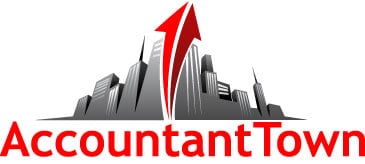Accounting Principles – Economics of Employment
To revert to the shoemaker, it will be remembered that association with another individual was not so satisfactory. The founder of the business thought to be better satisfied if he might employ someone to whom he could delegate a part of his functions without giving him a voice in the management.
If we might imagine the business as prospering, it is probable that we should have to imagine an extension of the business as replacing the modest shop. The bench or two with which the individual began would be magnified into a manufacturing department with a foreman or superintendent at its head. In keeping with the enlargement would come the retail store with a sales force and a clerk in charge of the store. The organization would also require an office where the accounts could be kept, the correspondence attended to and from which the proprietor could administer the business. We might say at this point that the business has been organized into three departments, namely, the manufacturing, selling and administrative departments.
The business as a whole, although organized into three departments for the purpose of management, is still under the control of an individual, the proprietor. Without parting with any voice in the business policies, he has delegated to his heads of departments certain duties or functions which previously he performed himself.
Imagining a still further growth of the business, it is evident that each department must be more highly organized. The manufacturing department having begun with a few men under a foreman, it was possible for the foreman to supervise the work of all of the employes. To facilitate the work and provide adequately for the output it may have been necessary to have more and separate rooms, thereby making supervision more difficult. Thus it may have been necessary to introduce a division of labor and a division of foremanship.
Where before each man made a complete shoe from start to finish, each man now performs only one function, such as cutting out uppers, stitching uppers, cutting out soles, etc. This has resuited in a classification of functions and a division of the shop into departments. Where the foreman previously supervised all the work, each department now has its own foreman with a superintendent over all.
In the latest type of economic organization, controlled by scientific management, the functions of the superintendent and foreman have been analyzed and classified and delegated to a number of individuals exercising supervision. What was previously known as the military type of organization has been replaced by the functional type. Great credit for this is due to Dr. F. W. Taylor, of Philadelphia, who has made a study of management his life work. Dr. Taylor realized that, given eight functions, as the number requisite for best results, it was easier and shorter work to train eight men each to learn and perform one function, than to train one man to learn and perform eight functions. It was also easier to find eight men of mediocre ability, each of whom could learn to perform one function than to find one who could learn and perform them all satisfactorily.
Under this type of management the functions of foremanship are delegated to
1. Route clerks,
2. Instruction card clerks,
3. Cost and time clerks,
4. Gang bosses,
5. Speed bosses,
6. Inspectors,
7. Repair bosses,
8. Shop disciplinarian.
The fact must not be lost sight of that although such an elaborate organization of the manufacturing department might exist, our individual proprietor may still be in control. He has merely delegated these functions to his employes.
The selling department will probably also have been organized on a more extensive scale, especially if the concern has entered the wholesale field. In addition to the retail store which now forms a minor part of the department, there will be a force of salesmen in the field, a division for advertising, with a sales manager presiding over the department.
Here again the proprietor has merely delegated a part of the work to an employe.
The administrative department will be under the immediate supervision of the proprietor. As assistants he will probably have men in charge of his accounting department, his financial department and perhaps his legal department.
Whether the function of management is vested in a sole proprietor, shared by partners, or in the hands of officers of a corporation makes no difference in so far as the working divisions are concerned. In the case of corporate organization the administrative department is somewhat more highly organized.
Corporations being artificial persons they must of necessity be represented by real persons. Such persons are known as the administrative officers. By administration is meant the conduct of the business by these officers. Some are actively engaged in its conduct while others are merely passively interested. In accordance with this distinction, administration divides into directive and executive administration.
The real owners of the corporation, namely, the stockholders, are represented in interest by the directors, acting for whom, in order to facilitate matters, is the executive committee. This committee in turn delegates the conduct of the business to the executive officers, who usually consist of
1. President,
2. Vice-president (one or more),
3. Controller,
4. Secretary,
5. Treasurer,
6. General solicitor.
The president has general charge and confers with the chairman of the executive committee. The vice-presidents, where there are more than one, assist the president and may have charge of certain divisions of the work such as the manufacturing or selling. The controller has general charge of the accounting and auditing and frequently a voice in the financial policies. He is distinguished from the company’s auditor usually in that the auditor as a rule has no voice in financial matters, his duties being confined to the control of the accounts and operating records and the preparation of financial and statistical reports.
The secretary has the charge of the corporate records and such other duties as special circumstances may indicate or the president may assign to him. The treasurer, as his title indicates, has the custody of the funds and frequently documents relating to the finances. Where there is a solicitor, he represents the company legally and attends to all matters pertaining to the law. He is in effect the company’s lawyer.
One function which has not yet been mentioned is that of purchasing materials and supplies. In many organizations, this feature assumes considerable importance. The question arises as to whether it is a technical or an administrative matter.
The ambition of the manufacturing department is usually to establish and maintain a high quality of product. A desire to improve the product frequently results, where the purchasing is left to the manufacturing department, in ordering the best that is in the market without regard to price. There is usually neither time nor inclination to ” shop” for prices. Thus it would seem undesirable to place this function in the hands of the head of the manufacturing department.
On the other hand, assigning this task to an administrative officer is open to the objection, that perhaps not being a technical man, that is not having an intimate knowledge of what is required in order to turn out the best product, and having as a rule as his one aim greater profits for the company which may be brought about through a reduction of the cost, the tendency on his part is to purchase cheaper material without “shopping for prices.”
To overcome the above objection, the function of purchasing is delegated to a special department of the administrative division which is known as the purchasing department. It is presided over by the purchasing officer, who if he is to be successful must be a man of special ability. He must be strictly honest and upright, have a substantial knowledge of the product, materials and supplies and be familiar with the markets. The work of his department consists in general in obtaining prices, analyzing and comparing goods and prices, and in following market fluctuations as well as purchasing in quantities best suited to the needs of the business consistent with the quality of the materials. It is true also that some purchasing officers in cases where the concerns have ample funds, purchase for speculative purposes although this is an exception to the duties usually assigned to the purchasing officer. This instance is mentioned because of the bearing which it might have on the accounting should the situation arise.
From the above it will be seen that in an organization engaged in manufacturing there will usually be four main divisions, namely, purchasing, manufacturing, selling and administrative. The bearing which these have on the accounting and the relation which they bear to the financial statements will be discussed later. For the present, the following may serve to summarize roughly the general scheme of organization in a manufacturing concern, together with the personnel and records with which the accountant should be familiar.
Access the contact form and send us your feedback, questions, etc. We are always welcome to help someone out. You can also contact us if you wish to submit your writing, cartoons, jokes, etc. and we will consider posting them to share with the world! The Facebook and LinkedIn groups are also good areas to find people interested in accounting like yourself, don’t hesitate to join as everyone of all levels are welcome to become part of the community.

